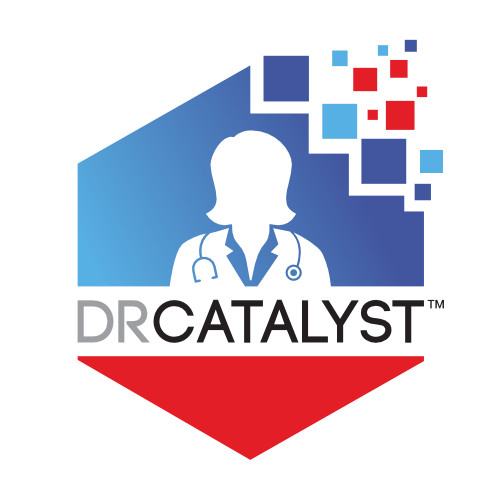New Office Manager Interview for Pain Management Practice
The healthcare landscape has changed drastically over the last decade. And due to the shift from volume-based care to value-based care, keeping up with the new and ever-changing rules and regulations surrounding medical billing is often difficult for medical practices. As a result, many medical practices, especially smaller practices, are opting to outsource their medical billing.
Smaller practices usually don’t have the time, resources, or staff to handle billing in-house. Therefore, they are turning to professional medical billing companies, like DrCatalyst, to reduce compliance issues, decrease medical billing inefficiencies, and get paid faster.
Ultimately, if you’re a small practice, partnering with a medical billing company frees up your time and allows you to focus on what really matters - your patients. But don’t just take my word for it - we recently spoke to the office manager at a private pain management practice in San Diego to learn more about why her practice chose to outsource medical billing and how she keeps her practice running so seamlessly. To keep the practice running like a well-oiled machine, she oversees all the day-to-day tasks, everything from handling paper charts to managing patient phone calls.
Managing a small private practice can sometimes be difficult, but she does a great job at it. Check out her Q&A below to learn more about her pain points, what advice she’d give a new office manager, and how outsourcing has helped her practice.
Q&A
Q: Could you tell me a little bit about your practice; how big is your practice?
A: Very small. It’s myself, one other full-time person, and one other part-time person, not including the doctor. It’s very small.
Q: What do your other two staff members do?
A: The other full-time staff member and myself both do the same thing. Every phone call that comes in is a project. And we see a lot of work comp patients. So, there are usually issues with patients not being able to get their medication. And there are big care issues - a lot of our patients are brain-injured, spinal cord-injured, paraplegic, quadriplegic and have had strokes. And, usually when these things happen, it’s not just one little thing wrong; it’s like five things that we have to deal with.
We both take care of the day-to-day, but mostly my co-worker takes care of more of the day-to-day than I do. She’s just wonderful. And day-to-day means doing mostly paper charts. We still have paper charts; we’re not going to go for an electronic medical record in the private practice because it would just require too much time, effort, and money. And we’ve asked the other doctors and their staff about the electronic medical records, and the majority of them don’t like the electronic medical record that they have. So, we’ll just stick with paper.
I also take care of his (the doctor’s) contracts, his med-legal work, and hospital appointments, stuff like that.
And the part-time person comes after work. She actually works for one of the other doctors full time. So she’ll come over at the end of the day, a couple days a week, and she’ll file and sort the incoming medical records. And she organizes them the way the doctor likes to review them.
Q: The main specialty of your practice is pain management, correct?
A: Yes, non-interventional. So, we don’t do epidural steroid injections or anything like that.
Q: Do you have any secondary specialties?
A: Well, because of his (the doctor’s) rehab specialty, we have a lot of patients that have had strokes and that are in wheelchairs, or some variation of that. And the psychiatry also comes along with that. We only have a handful or less of pure psychotherapy patients because he just doesn’t have time for that. But, for the most part, he does his psychiatry with his chronic pain and rehab patients to help them and their families adjust to their new living situations.
Q: I want to learn a little bit about some of your pain points and challenges. What would you say are some of the most challenging things that you face?
A: I think the billing issue is challenging. You have to really make sure that you have a good relationship with your billers, especially if you outsource your billing. So, that’s important. You have to really know your billers and have a good communication relationship with them - you have to be able to find out if there is something going wrong. And if something’s not paid or if something is screwed up, you need to know about it. I think that is the most challenging thing.
Other than that, I come in on Saturdays, usually. And it’s nice to be able to come in on Saturdays so that way I can get things done without any other issues. Some patients are concerns, but that’s with every practice. You’re always going to have patients that you’re not going to be able to get a hold of or they’re not going to be as compliant as you want them to be with what you need them to do. But, I think, mostly the issue is financial, making sure you have a good relationship with your billers.
Also, with all the new and different types of insurances that some companies have, it’s important to know what you accept and what you don’t. And sometimes you don’t know what you accept and what you don’t. You think you accept everything, every little vehicle that one company offers but, in reality, you don’t. That’s the frustrating part and then you get surprised by not getting paid.
Q: So you outsource your billing, correct? Why did you decide to outsource your billing vs. keeping your billing in-house?
A: Yes, we do. If I had to do that, I would kill myself. It’s (medical billing) a whole other job. I believe it’s more than a one person job.
Q: Does your practice deal with a lot of prior authorization issues?
A: Yes, there’s always prior authorizations. We have Medicare and Medical patients. And for some of these meds, they need prior authorizations for the brand or they need prior authorizations for the amount of pills per day or the amount of milligrams per day - that's the issue.
It’s the work comp issues, the authorization issues, that are really frustrating. We think that the work comp system in general is not transparent. Every time you request a medicine, and every month you see a patient and you’re requesting medicine to be filled, you have to request authorization for it. And you have to fax it in along with the report on a specific form and then there’s a pick a doctor to review these things. And for each one of these cases, the doctor gets paid at least $100 or $200 per case or per half hour. So, it adds to the cost of the work comp. And if the patient ever settles, they’ll take all those costs out of the patient’s settlement.
And then you’ve got doctors that are reviewing what you’re asking for and they’re not even in your specialty. Like, we’ll request authorization for a psychiatric medication because the patient has been treatment-resistant to these three other things and then you’ve got a doctor in internal medicine who’s reviewing it - that shouldn’t even be. It shouldn’t be a doctor in internal medicine who’s reviewing for psychiatric stuff, it should be a psychiatrist. But they don’t care, and then they’ll deny it. And then it will go to an IMR (Independent Medical Review). And if they deny it, the denial stands for a year unless the patient has an attorney that will go to the work comp appeals board court and see if they can get it overturned. That’s more money spent, and that could be for one medicine that they’ve already been taking. If they’ve already been taking it (the medication) for six months, then all of a sudden this doctor is reviewing it and decides that the patient doesn’t need it anymore, the patient can’t get that through work comp. And some of our patients only have work comp insurance; they don’t have any other insurance because they can’t afford it. That’s the real frustrating part. We know that there’s only so much that we can do. That’s a daily gut-twister, that one.
Q: What is one thing that would make your life as a practice manager easier?
A: More time in my day. Less interruptions in my day. I think that would be it - and having the work comp utilization review process be more transparent.
Q: What advice would you give to a new office manager?
A: I’d probably have them start out with an electronic medical record; that’s one thing. If you’re going to start, at the beginning of your practice, you can do electronic medical records.
And always make sure that you have a very good working relationship with your biller. There’s a lot of things that can get screwed up, ignored, and messed up if you don’t because that’s like on the other side of a wall; it’s a big wall. We send all of our reports, counter forms, and superbills to our billing company. Then, they take it. And you really need someone there to make sure that things are posted correctly and that they’re going to follow up on aging reports - that’s the big thing. You can’t just have any fly-by-night biller. You have to have someone who really knows what they’re doing and that has the staffing to follow up on aged bills, the over 90 days and all that.
Q: What do you enjoy doing outside of work/being an office manager?
A: Well, I go to the gym. I do a class 3-4 times a week. When I go on vacation, I like to hike. Even when I’m not on vacation, at least once a week, I go out for about an hour or two hour walk. Someday, I’d like to be able to get back into riding again. I used to ride horses and I miss it terribly.
A lot of great advice and insight was shared during this interview - however, the thing that really stood out to us here at DrCatalyst is the medical billing pain point that she mentioned. We work with medical practices of all specialties across the country and that is always one of the top challenges/pain points that medical practices tell us about. Medical billing is a major headache for most practices, especially for small private practices. And honestly, that’s why a lot of medical practices choose to outsource. And her advice about ensuring that you have a good relationship with your medical biller/medical billing company is spot-on. It’s very important to choose a medical billing company that is transparent, has good communication skills, and gives you visibility into what they are doing.
Unsure if outsourcing is right for your practice? to help you make the decision!
Interested in participating in our Office Managers blog series? Email our interview coordinator, Adrian, at adriand@drcatalyst.com to set up an interview.
Useful Links
Contact
3100 Carr 199, STE 202
San Juan, PR 00926-7660
United States
Useful Links
DrCatalyst | All Rights Reserved.
Contact
3100 Carr 199, STE 202
San Juan, PR 00926-7660
United States
Useful Links
DrCatalyst | All Rights Reserved.














